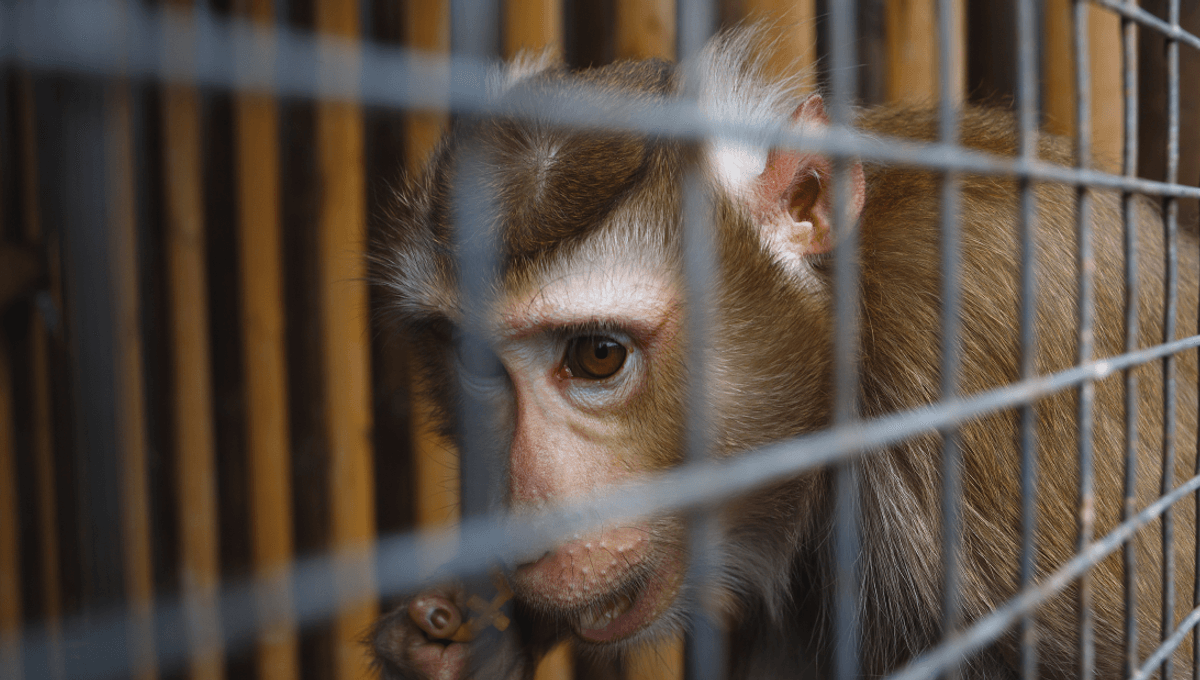
A federal judge has left little unsaid in her ruling that the United States Department of Agriculture (USDA) acted unlawfully when it denied a petition to improve the treatment of primates used in research. The ruling indicates that increased regulatory attention may now be given to laboratories using non-human primates, and may possibly extend to other research animals.
Judge Julie Rubin of the federal district court in Maryland issued the ruling that went in favor of Rise For Animals and the Animal Legal Defense Fund, who were behind the original petition, in a victory for Harvard Law School’s Animal Law & Policy Clinic. It asked for improvements in the psychological well-being standard of primates used in research but was denied by the USDA.
Under the scrutiny of federal court, the government agency has received a dressing down from Judge Rubin whose 28-page decision described the reasoning for denial as a “farcical beard,” “rather beyond the pale,” and “approach[ing] absurd.”
“I am so pleased to see the court rule in our favor and hold the [USDA] accountable,” said Ed Butler, Executive Director of Rise for Animals (formerly the New England Anti-Vivisection Society), in a press release sent to IFLScience. “The record shows USDA, through its Animal Plant and Health Inspection Service (APHIS), failed primates used in laboratory research. This ruling is another step forward in our fight to end experiments that harm animals and provide no benefit to human health.”
We spoke to Animal Law & Policy Clinic’s Director Katherine Meyer to find out more.
How does it feel to have achieved this ruling from Judge Rubin?
Meyer: We are extremely pleased with Judge Rubin’s ruling. Not only did she agree with us that the agency’s denial of our clients’ petition to improve the standards for primates was unlawful, but in the course of doing so she also concluded that the agency’s new secret inspection policy – whereby it prohibits its inspectors from doing full inspections of AAALAC accredited labs – undermines the whole purpose of the Animal Welfare Act.
She concluded that this inspection policy “turn[s] a blind eye to the constellation of considerations AWA requires the Agency to consider.” Because we are currently also challenging that policy in a related case that is also before Judge Rubin this gives us high hopes that she will also rule that this policy is unlawful.
What happens now?
Meyer: Based on her ruling, the USDA must now give serious consideration to improving the psychological welfare standard for primates. We are hopeful that as a result of this ruling, the USDA will amend its current standard that allows each facility to devise its own “plan” for enrichment, and actually instruct research facilities of the measures they must adopt to make sure the psychological needs of these animals are being met – for example, by requiring the social housing of primates, and making sure these animals have access to the outdoors and other forms of enrichment – such as things to manipulate and climb on, opportunities to forage and build nests, etc.
If we are going to continue to use these highly intelligent social animals for our own benefit – whether for research or “entertainment” – we should at least provide them an opportunity to engage in a semblance of their natural behaviors.
What does it mean for animal rights to see a government agency held accountable in this way?
Meyer: It is very heartening, and unfortunately quite rare, especially because we challenged an agency’s refusal to grant a rulemaking petition – where agencies tend to be given the most deference from a reviewing court. Here, Judge Rubin was clearly quite concerned about the fact that when it denied the rulemaking petition the USDA provided a “false” justification for doing so.
How can people help?
Meyer: There is much to be done on this issue, not only with respect to how primates are treated in research facilities, but also how they are treated in zoos and other exhibits. The USDA has authority under the Animal Welfare Act to issue standards for their treatment, but it not only tends to issue weak standards, but then does not enforce even those standards.
US residents can not only continue to urge the USDA to take its animal care obligations more seriously, but should also urge Congress to enact legislation that not only strengthens the standards that apply to animals used in these endeavors, but also amends the Animal Welfare Act to include a “citizen suit provision” that would allow members of the public and animal welfare organizations to bring cases directly against violators of the statute to enforce its provisions.
Source Link: USDA Acted Unlawfully In Denying Petition To Improve Lab Primates’ Treatment, Judge Rules